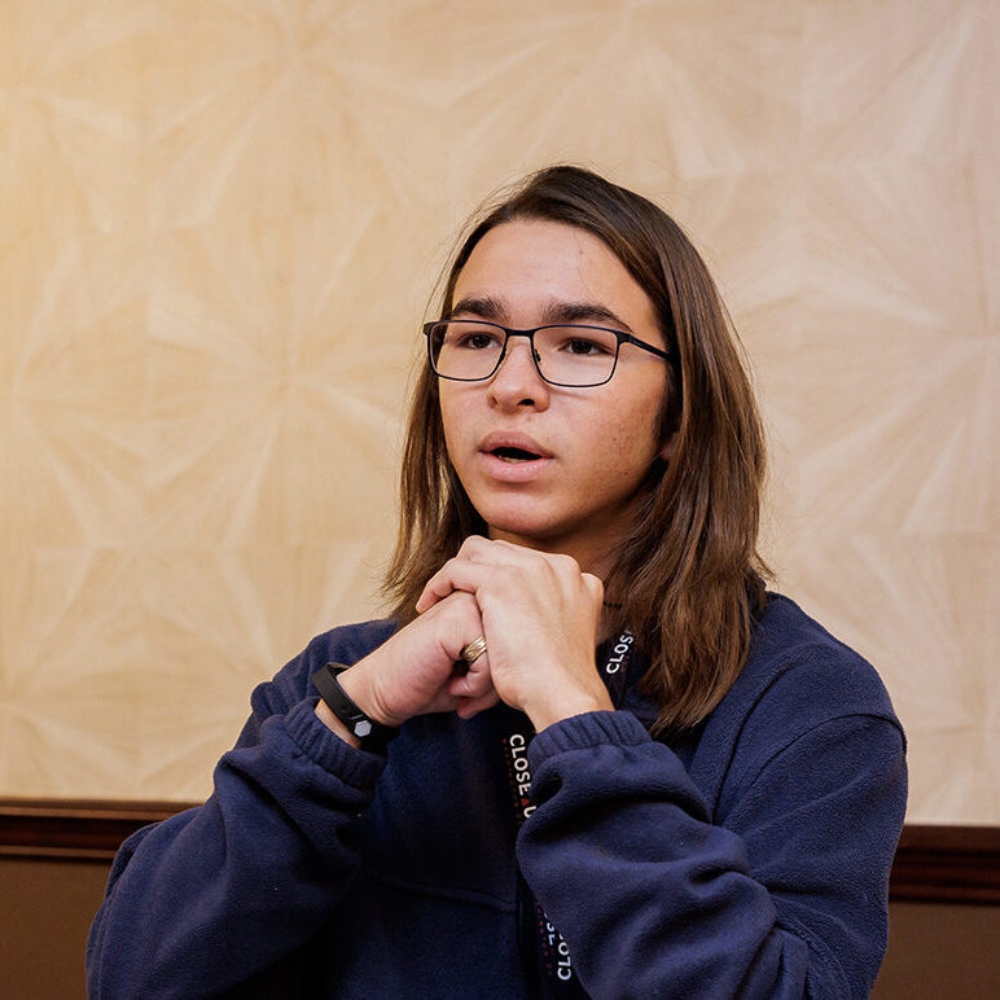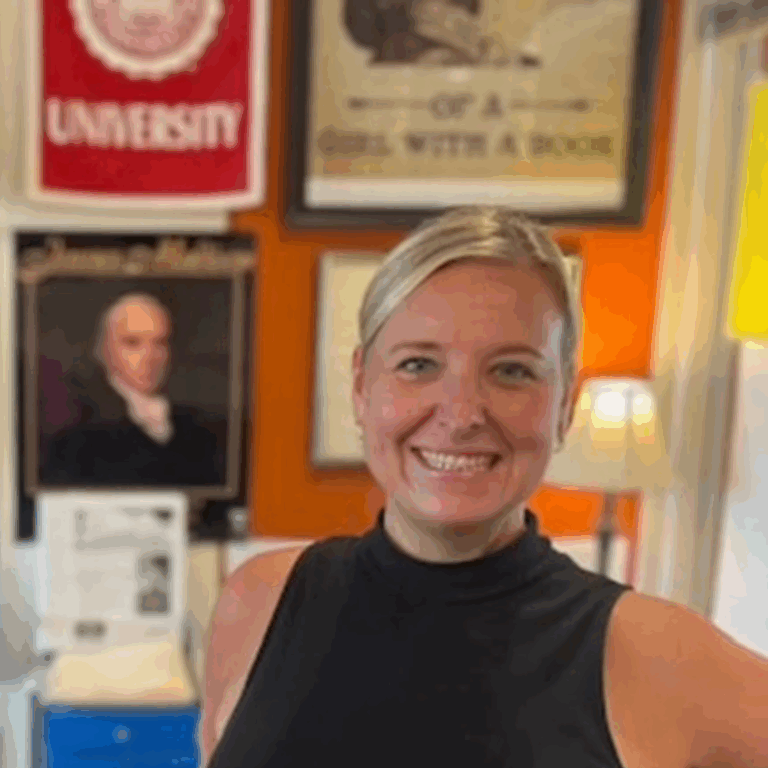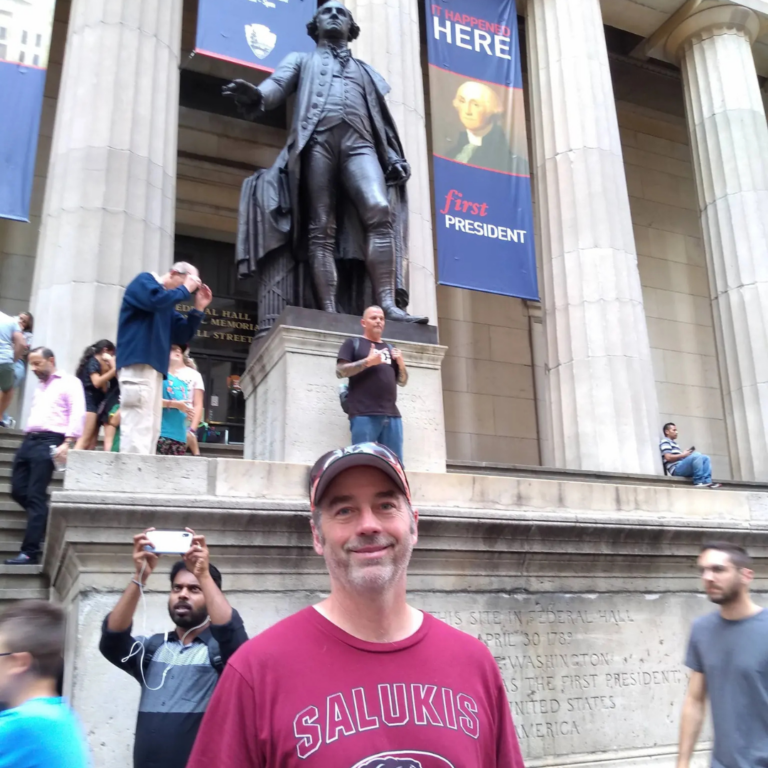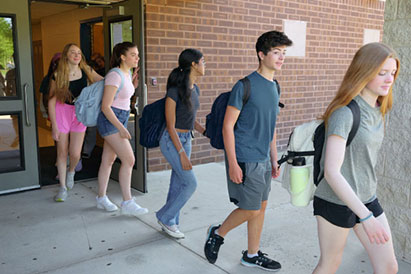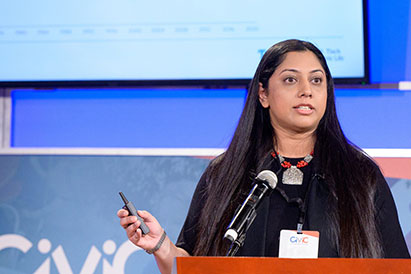On the Youth Fellowship
I’ve always had a passion for helping people as well as a deep appreciation for education. My previous government teacher shared with me this opportunity to be a part of the iCivics Youth Fellowship, given we’d used iCivics materials before in class. So I applied… and got in! It’s been an honor and privilege to be a part of the movement for better civic education.
Being a part of the Fellowship had a profound impact on me. In my life, I haven’t met many people interested—dare I say passionate?—about government. Through the fellowship, I finally found a group of people to connect with. We had educated conversations and tried to resolve civics issues affecting us.
I was surprised by the amount of engagement we had within our community. We weren’t just sitting there, saying what we already thought and knew. No, we actually interviewed our peers and gathered their many different viewpoints. Learning how to do that was so valuable to me. It helped me communicate better. It made our projects better. It helped the future of civics and our country.
The people in the Fellowship all had different backgrounds, opinions and career paths, yet we shared the common goal of improving civic education to promote these ideals to keep our Republic going. I found the others to be dedicated to this cause, and willing to put their political beliefs aside in order to work together. It was relieving to see, and makes me hopeful for the future.
On the Value of Civic Education
I think a lot of young people do care about what’s going on politically. I’ve had one-on-one conversations with people who are interested. But publicly, they don’t always express that. They fear the repercussions and the social effects. Part of that is just our age group—the social dynamics, the cliques in school…
There is a trend among some young people—they think, “Why bother?” Through media, they see little getting done, and constant bickering and fighting. However, I see that once young people get a proper civic education—once they sit down and make sense of how our government works, and why these systems are in place—they get a better sense of democracy as a system to uphold…one worth fighting for. Education plays a major role in evading crisis.
On Civic Education
In Arizona, there is just one semester of a civics course; then you have to take the Arizona state-mandated civics test and receive a 70 or higher. It’s similar to the U.S. citizenship test. What’s become clear to me is your education depends on the quality of your teacher, given the teaching requirements are loose and open to interpretation. I was very lucky to have excellent teachers in government. But I also know students who didn’t have that. And realistically, you can only learn so much about a subject in six months.
For something like civic education, learning activities should be far more “hands-on.” It would certainly make it more interesting to more students.
When you stop to think about it, civics is a set of skills that you use—and build on—for the rest of your life. We need practice. It’s learning how to be a savvy interpreter and user of media It’s knowing how the judicial system works. It’s knowing what your rights are. It’s playing a role in your government and fulfilling your duties as a citizen. And it includes effective communication—how to convey different ideas between different people. Honestly, it’s part of the beauty of this country too—that we can speak openly in a class or debate setting.
I also think elected officials should be brought in more. It’s inspiring for students to have those who make the laws come in and talk to them. That has a major impact. Maybe classes could take trips down to their local town halls, or the courts, or even the legislature if you’re close enough to the state capital.
Games and hands-on simulations also definitely help. To have students doing the learning sticks with students more than traditional worksheets and reading.
On iCivics
The first time I used iCivics was in 8th grade. This is when we, in Arizona, start learning the basics about American history and government. My teacher mainly used the games, assigning us to play and then send her the results.
Now I’ve always been passionate about government, but I saw how iCivics was even able to affect students who weren’t as interested in government or policymaking. It gave the teacher an opening to pique their interest. I saw how these games engaged us all. Soon, my classmates were picking up on new ideas about government, because the topics weren’t far-fetched. iCivics opened our eyes, bringing government down to a level we could understand and touching on things that concerned us.
Civics, as a skill set, is not easy to learn. It’s an umbrella term for so much, and it’s unique to each individual. Yet it is such a key skill for us all to have in life.
iCivics tries to tackle this issue with hundreds and hundreds of resources for students to help understand how to address the world around them—knowing about government, policy, elected officials, how to check if a source is reliable, how to form a logical opinion, how to consider other opinions with respect. iCivics allows every voice to be heard. Its work will affect generations of Americans, and guide the course of our Republic.
